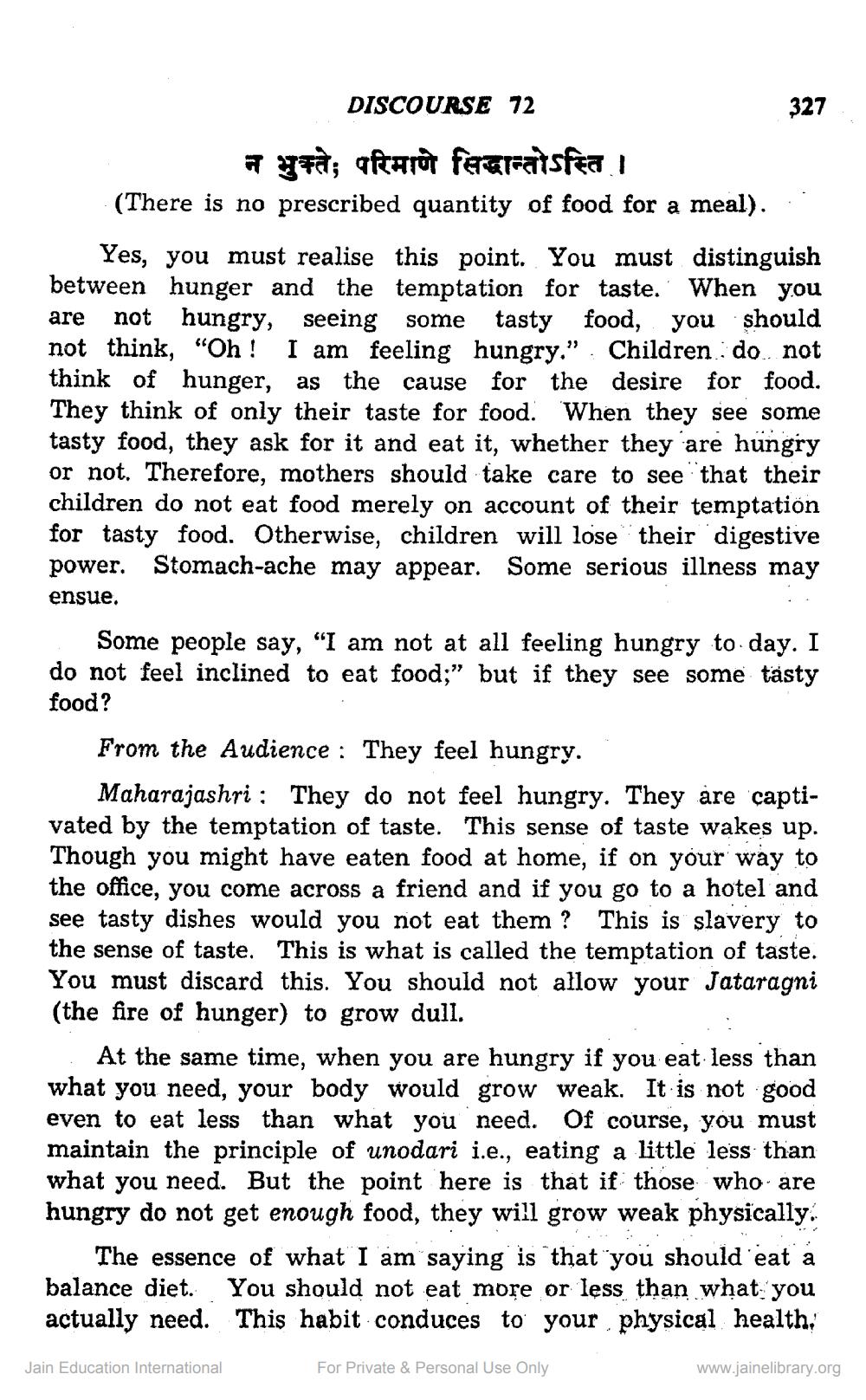________________
DISCOURSE 72
a yìà; iftam fegratsfea i
(There is no prescribed quantity of food for a meal).
327
Yes, you must realise this point. You must distinguish between hunger and the temptation for taste. When you are not hungry, seeing some tasty food, you should not think, "Oh! I am feeling hungry." Children do not think of hunger, as the cause for the desire for food. They think of only their taste for food. When they see some tasty food, they ask for it and eat it, whether they are hungry or not. Therefore, mothers should take care to see that their children do not eat food merely on account of their temptation for tasty food. Otherwise, children will lose their digestive power. Stomach-ache may appear. Some serious illness may
ensue.
Some people say, "I am not at all feeling hungry to day. I do not feel inclined to eat food;" but if they see some tasty food?
From the Audience: They feel hungry.
Maharajashri
They do not feel hungry. They are captivated by the temptation of taste. This sense of taste wakes up. Though you might have eaten food at home, if on your way to the office, you come across a friend and if you go to a hotel and see tasty dishes would you not eat them? This is slavery to the sense of taste. This is what is called the temptation of taste. You must discard this. You should not allow your Jataragni (the fire of hunger) to grow dull.
At the same time, when you are hungry if you eat less than what you need, your body would grow weak. It is not good even to eat less than what you need. Of course, you must maintain the principle of unodari i.e., eating a little less than what you need. But the point here is that if those who are hungry do not get enough food, they will grow weak physically.
The essence of what I am saying is that you should eat a balance diet. You should not eat more or less than what you actually need. This habit conduces to your physical health,
Jain Education International
For Private & Personal Use Only
www.jainelibrary.org




